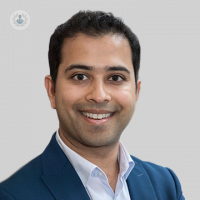What are the most common causes of hair loss in women?
Written by:Hair loss affects more women than one may think, with approximately 1 in 6 women aged in their thirties from UK, US or Australian ancestry experiencing female pattern hair loss (FPHL), the most common form of hair loss in women. This rises to over 50% of women experiencing FPHL over the age of 65 years. By comparison, only 1 in 50 women aged in their 30s from China and South Korea are affected by hair loss, and 1 in 4 over the age of 65.

What are the causes of hair loss in women?
Female pattern hair loss (FPHL), otherwise known as androgenetic alopecia, is the female equivalent of male pattern baldness. In women, FPHL causes progressive thinning of the hair, particularly on the top and crown of the scalp. The hair becomes finer, and hair partings may become wider.
FPHL is a genetic condition in most cases, but in approximately 10% of cases, it can be related to hormonal abnormalities, such as PCOS.
Excessive hair shedding, otherwise known as telogen effluvium, is another condition where a physically or emotionally stressful event can cause hair loss. It often occurs suddenly, around three months following a stressful event, and usually resolves within approximately six months. It is most commonly seen after pregnancy, however severe illness, major surgery, chronic illness, crash dieting, nutritional deficiencies and medication can be causative. Additionally stopping the combined oral contraceptive pill or Minoxidil may be responsible.
Another common cause of hair loss in women is alopecia areata, an autoimmune condition where the immune system attacks the hair follicles. This commonly results in patches of complete hair loss, usually on the scalp, but can affect any hair-baring site.
How is hair loss treated?
Many cases of hair loss in women may be temporary. Others may be progressive, requiring treatment to prevent additional and on-going loss. The correct diagnosis is key to understanding what may happen in the future and what the best treatment options are.
The most common treatment for FPHL is Minoxidil, which is available over the counter. It comes as a lotion or foam and may slow further hair loss, or, to a lesser extent, encourage regrowth. There are a number of other tablet medications that can be of benefit for certain women.
For alopecia areata, there are a number of options available, including medicines to apply to the scalp, injections or tablets. Additionally immunotherapy and light therapy are sometimes used and newer medications are currently on the horizon.
The right treatment option is based on a number of factors, however central to this is an understanding of the person as a whole, not just the hair loss in isolation.
For more information regarding the treatment options available to you, make an appointment with a specialist here.


